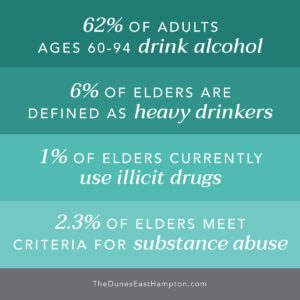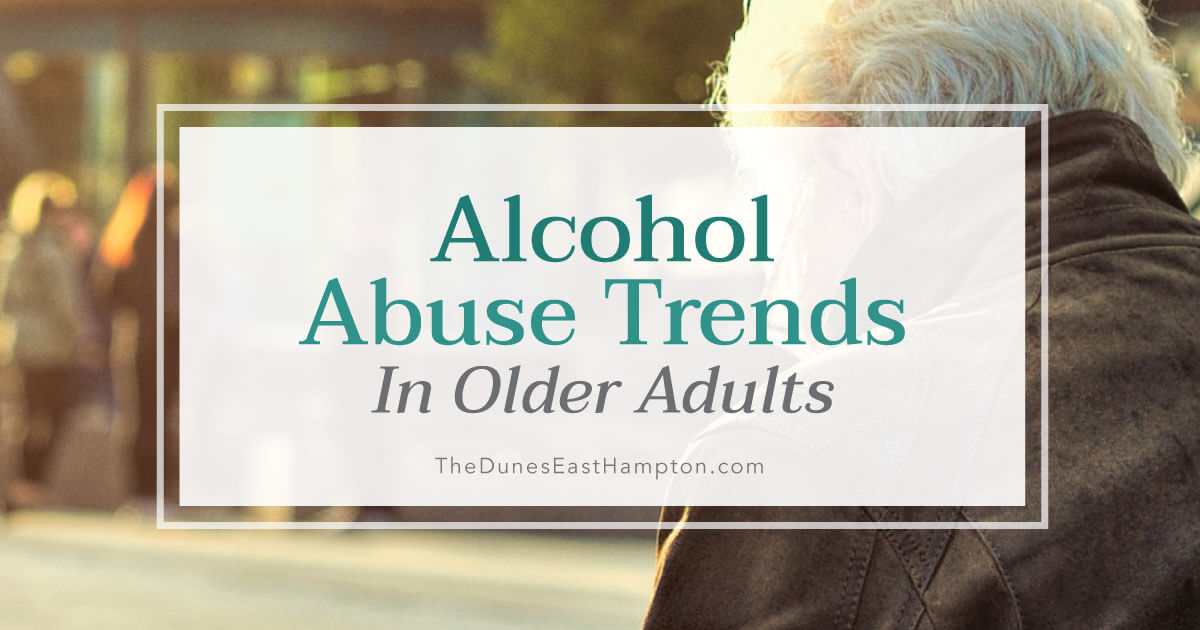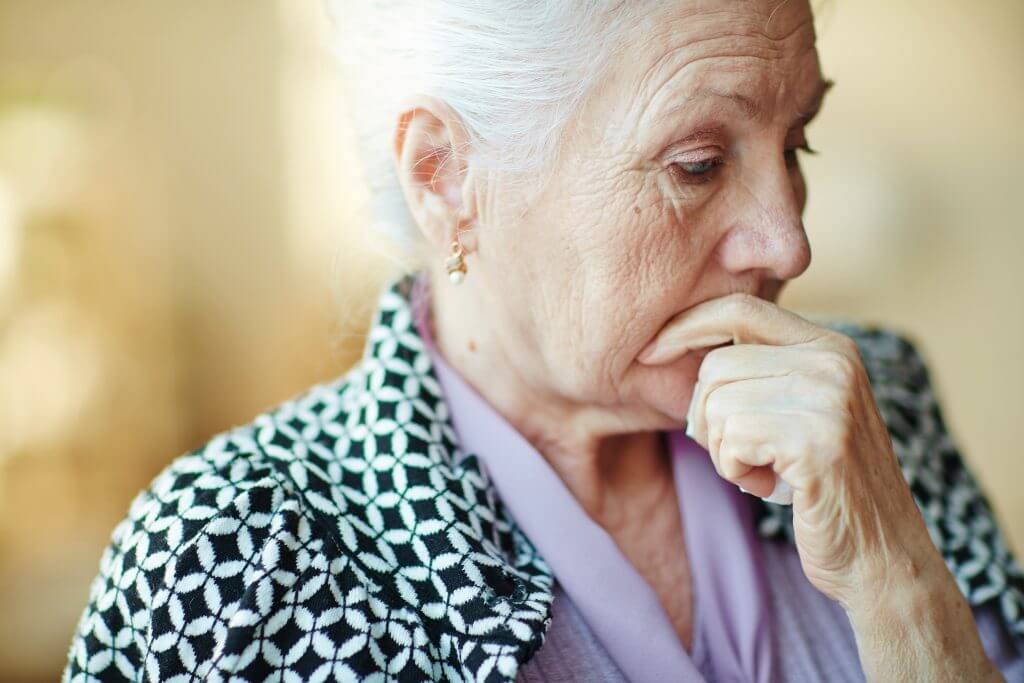One of the interesting facts about addiction is that alcohol abuse affects people of all ages. However, researchers have recently noted increasing alcohol abuse trends in older adults. Baby boomers – people currently aged 53-71 – are drinking more and suffering from the consequences. Every adult, child, and senior citizen should understand the trends, risks, and warning signs of drinking heavily in later life.
Data Supporting Trends in Elders Over Drinking

In a study from New York University published in December 2016, researchers discovered notable increases in the number of American adults aged 50 and older who responded with habits in past year use, past month use, binge drinking, and abuse disorders. The study evaluated trends in use from 2005-2014. The representative survey sample included men and women as well as adults who admitted to healthy lifestyles and chronic or acute conditions. Alarmingly, at-risk individuals who face chronic conditions report binge drinking and other unhealthy alcohol behaviors. The rate in dangerous drinking behaviors has also significantly increased in older women.
While it may be hard to believe, there is an increase in alcohol abuse trends in older adults. Not every baby boomer abuses alcohol, but the trends show clear over drinking tendencies. Many of these adults may have impressed upon their children the dangers of binge drinking and alcoholism, only to develop a risky habit in later life. The good news is that many older adults respond well to rehabilitation programs and do not relapse at the same rate as the younger population.
Why Do Older Adults Turn to Alcohol
Every alcoholic’s story is different, but certain factors may increase the likelihood of an alcohol abuse problem. 
Denial often plays a role in alcohol abuse during later life. Many individuals grew up around and drinking alcohol. In younger years, they may have consumed the substance in moderation and as part of a robust social life. In later life, they may make rationalizations about increasing consumption rates and unhealthy habits. “I earned it,” “I’m retired,” and “I’m accustomed to enjoying cocktail hour,” can all turn into rationalizations for ever-increasing amounts of alcohol.
Until older adults identify the root cause of the problem and address it, alcohol will continue to play a central role in daily life, slowly decrease an individual’s quality of life, and isolate a senior from the joys of later life. Many seniors dependent on alcohol need a guiding hand to help them understand the risks of drinking and the rewards of sobriety during golden years.
The Risks of Drinking in Later Life
Many seniors think that indulgence in later life is acceptable. They may justify their habits without thinking about the potential physical and psychological risks of over drinking. The aging body is very different from the younger one. As parents, aunts, uncles, and community members, seniors can choose to support their health in later life or sabotage it.
According to the National Institute of Alcohol Abuse and Alcoholism, women should not exceed three drinks a day up to a maximum of seven drinks per week. Men should not drink more than four drinks per day up to a maximum of 14 drinks per week. Any drink in excess increases the risk of complications. If those numbers surprise you and you drink far more than the recommended amount, you may want to consider cutting back or seeking treatment.
In later life, especially, alcohol-related complications may arise more quickly. Liver damage, cancer, falls, and cognitive impairment risks all increase as alcohol use increases. Furthermore, alcohol impairment may damage familial and social relationships, lead to embarrassment, and contribute to isolation and depression. Older adults also commonly take medications that may interact with alcohol.
No one should ever take benzodiazepines, opioids, acetaminophen, aspirin, insulin, or prescription blood thinners in conjunction with alcohol. Doing so increases the risk of complications and death. For many drug interactions, the damage occurs before users realize it. Your health and status as a grandparent, parent, and loved one is not worth the risk.
Warning Signs of Alcohol Abuse Trends in Older Adults
If individuals and those close to them recognize warning signs of alcohol abuse trends in older adults, talking about the potential problems can help. For alcohol abuse trends in older adults, signs of depression, isolation, overindulgence at family events, and regular cognitive impairment (not otherwise explained) may indicate substance abuse. Many seniors may suffer from a mental illness alongside alcohol addiction, so a dual diagnosis treatment program may be the best option for them.
Some seniors may also experience co-occurring substance abuse problems. When taken with legitimate prescriptions including opioids and benzodiazepines, alcohol consumption risks increase significantly. The interactions may render a senior catatonic and depress respiration to dangerous levels.
Help for Seniors at the Dunes East Hampton
In the United States, Alcoholics Anonymous supported 1,262,542 members as of January 2016. Lawyers, doctors, counselors, teachers, and blue-collar workers all face the risk of alcohol abuse and social, emotional, and physical complications. No one should ever feel ashamed about admitting a reliance on alcohol or reaching out for help. Life is hard, especially with alcohol abuse trends in older adults, and so many falter when it comes to drugs and alcohol.
At The Dunes East Hampton, we strive to provide a private and respectful environment focused on alcohol abuse support for people of all ages. We routinely serve older adults, and we thoroughly understand the stigma and the power in rehabilitation and hope for the future.









